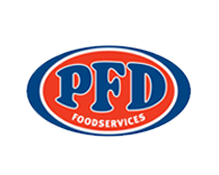Data Normalization
Data normalization:Data normalization is the process of transforming data into a standard format so that it can be easily compared and analyzed. Normalization often involves converting data into a common format, removing outliers, and scaling data so that it is within a certain range. Normalizing data makes it easier to work with and understand, and can improve the accuracy of results from data analysis tasks.
Data normalisation is a technique that has become increasingly important for organisations in the modern age. This process of transforming data into consistent and compatible forms allows businesses to make more informed decisions, optimise operational processes, and ultimately increase their overall success. In this article we will look at what data normalisation is, why it is important and how it can be used effectively.
At its core, data normalisation involves taking large sets of complex information and breaking them down into smaller parts which are easier to understand and manage. It also helps achieve consistency across all components of the dataset so that they can be compared side by side. Through these techniques, data is organised in an efficient manner allowing organisations to draw meaningful insights from their information sources with relative ease.
Finally, data normalisation provides businesses with opportunities to save time and money while improving accuracy and reliability when dealing with datasets. With clear understanding of the importance of this concept, companies have begun to embrace this practice as part of their regular operations in order to maximise efficiency and gain a competitive edge.
What Are The Four 4 Types Of Database Normalisation?
Database normalisation is a process of organising data in a database to reduce redundancy and improve data integrity. This process involves several normal form techniques which help ensure that tables are properly structured for efficient storage, retrieval and manipulation of relevant information. There are four main types of database normalisation:
- first normal form (1NF),
- second normal form (2NF),
- third normal form (3NF)
- and Boyce-Codd Normal Form (BCNF).
First Normal Form requires the removal of all repeating groups from the table structure. All attributes must also be identified by using either primary keys or composite keys. The primary key is composed of one or more columns within the table whose values uniquely identify each row within a given table. Composite keys, on the other hand, combine multiple columns together in order to create a unique identifier for each row. By eliminating redundant entries in the database design, 1NF helps minimise data anomalies such as insertion, update and deletion anomalies when manipulating data in databases.
Second Normal Form further refines 1NF by requiring that non-key fields must depend upon the entire primary key rather than just part of it; this ensures that there will not be any partial dependencies present between related tables. 3NF then builds on 2NF by ensuring that no transitive dependency exists among non-primary key fields; this means that every field depends only on the primary key itself and nothing else. Finally, BCFN builds on 3NF with an additional requirement that states if there is more than one candidate key per relation, then all these candidate keys should be mutually independent meaning they cannot contain common attributes amongst them. Utilising these various types of normalisation techniques can greatly improve a database's overall efficiency while reducing redundancies throughout its design.
What Is 1nf 2nf And 3nf?
Database normalisation is the process of organising data into a standard format to reduce redundancy and increase data integrity. It involves breaking down a database into its individual components, or tables, and ensuring that each table contains only one type of information. This helps to ensure that the data stored in the database is consistent and accurate over time. The goal of normalisation is to eliminate redundant data and create efficient structures for storing data.
The most widely accepted system of database normalisation is known as 1NF (First Normal Form), 2NF (Second Normal Form) and 3NF (Third Normal Form). In order to be considered ‘normalised’, all databases must conform to these three forms. First Normal Form requires that all attributes within a given row are single values with no repeating groups; Second Normal Form states that there should be no partial dependencies between columns; and Third Normal Form eliminates multi-valued dependencies from the database structure. Additionally, Boyce Codd Normal Form (BCNF) further ensures functional dependency by eliminating any non-prime attribute from the key set.
Normalisation strategies help minimise errors caused by incorrect insertion, deletion or modification of data elements in a relational database management system. By following certain formulas when designing databases such as 1NF, 2NF & 3NF it allows them to become more organised and easier to update without compromising accuracy or consistency. Furthermore, this helps maintain better overall performance due to reduced complexity which makes it much simpler for queries and other operations on large datasets.
How Do You Normalise Data?
Data normalisation is the process of organising data into a logical, structured format in order to make it easier to search and access. It involves transforming raw input samples into standardised forms that can be compared with other sample sets. Normalising data helps ensure accuracy and consistency across multiple databases or database structures by eliminating anomalies caused by incorrect or incomplete deletion processes.
There are several types of normalisation used when dealing with data. The most commonly used techniques include statistical models such as z scores, which are used to convert values from one scale to another; and database normalisation, which includes breaking down complex information into simpler parts for easier storage and retrieval. Additionally, the concept of ‘normal form’ provides guidelines for how data should be organised within an existing database structure. This ensures that any changes made do not disrupt the underlying logic of the structure itself.
Normalising data makes it easier to analyse and interpret results accurately, while also helping reduce redundancies in large datasets. By using these methods, researchers can effectively create a more efficient workflow while managing their data inputs more efficiently. Moreover, having a well-structured dataset allows for better decision making based on reliable insights drawn from accurate analysis of the input sample's characteristics.
What Is The Main Goal Of Data Normalisation?
Data normalisation is the process of transforming data into a format that can be used for comparison and analysis. The main goal of data normalisation is to ensure that all technical variations are accounted for when analysing results from different sources, such as quantitative real-time PCR (qPCR) or other methods in which endogenous controls are used. Normalising the data allows us to compare it with other datasets within a relational database.
Normal form, also known as database normalisation, is an important concept in data normalisation and refers to the process of organising columns and tables so that they contain only related information. This organisation helps reduce errors due to duplicate entries, missing values, or incorrect assumptions about how the data should be interpreted. For example, if two pieces of information are stored together but one contains more detail than the other, then this could lead to confusion during analysis. By separating them into separate fields and keeping them in distinct tables or rows, we can avoid these issues.
Data normalisation forms vary based on application goals; however, ensuring each piece of information is uniquely identified and has its own dedicated field is essential regardless of what type of data you’re dealing with. Having properly normalised data will help prevent discrepancies between databases and make integration easier across multiple systems. Additionally, by having clearly defined boundaries between fields it becomes simpler to identify relationships across different datasets quickly and accurately.
Conclusion
Data normalisation is the process of organising data into related tables to reduce redundancy and improve consistency. This can be used to protect against anomalies that can lead to problems such as insertion, deletion, or update anomalies. The four types of database normalisation are 1NF (First Normal Form), 2NF (Second Normal Form), 3NF (Third Normal Form) and BCNF (Boyce-Codd Normal Form).
Each form imposes increasingly strict rules on how data should be organised in a table, going from basic structure through to more complex relationships between multiple tables. To normalise data correctly one must understand the basics steps involved: identify repeating groups in existing structures; create new tables for each group; break up those groups into smaller subgroups; assign primary keys per table; link all tables with foreign keys; check integrity constraints.
The main goal of data normalisation is to organise data efficiently by reducing redundant information and improving accuracy. It also allows for faster searches and helps ensure data remains consistent across different transactions within an organisation's system. Data normalisation increases scalability by eliminating unnecessary repetition which reduces storage requirements while providing better performance due to reduced complexity when querying databases. Thus, it provides organisations with cost savings over time along with improved efficiency in managing their databases.
PREVIOUS NARROW AI GLOSSARY TERM
NEXT NARROW AI GLOSSARY TERM
Data Normalization Definition
Exact match keyword: Data Normalization N-Gram Classification: Data normalization techniques, data normalization process Substring Matches: Data, Normalization Long-tail variations: "Data Normalization Techniques", "Data Transformation Process" Category: Software, Database Systems Search Intent: Research, Solutions, Purchase Keyword Associations: Data Transformation, Sanitization, Standardization Semantic Relevance: Database Systems, Machine Learning, Data Science Parent Category: IT & Software Subcategories: Database Systems, Machine Learning, Artificial Intelligence Synonyms: Transformation, Sanitizing, Standardizing Similar Searches: Data Transformation Processes , Data Sanitizing Methods , Data Standardizing Techniques Geographic Relevance: Global Audience Demographics: Programmers/Developers , Technology Professionals , Students/Researchers Brand Mentions : Oracle , MongoDB , SQLite Industry-specific data : Conversion rates from legacy systems to new systems , success rate of controlled environment dataset upgrades Commonly used modifiers : "techniques", "process", "best practices" Topically Relevant Entities : Database Systems; Machine Learning; Artificial Intelligence; Data Transformation Processes ;Data Sanitizing Methods ;Data Standardizing Techniques."Larry will be our digital expert that will enable our sales team and add that technological advantage that our competitors don't have."
Kerry Smith
CEO, PFD Foods
$1.6 billion in revenue 
"Lion is one of Australasia’s largest food and beverage companies, supplying various alcohol products to wholesalers and retailers, and running multiple and frequent trade promotions throughout the year. The creation of promotional plans is a complicated task that requires considerable expertise and effort, and is an area where improved decision-making has the potential to positively impact the sales growth of various Lion products and product categories. Given Complexica’s world-class prediction and optimisation capabilities, award-winning software applications, and significant customer base in the food and alcohol industry, we have selected Complexica as our vendor of choice for trade promotion optimisation."
Mark Powell
National Sales Director, Lion
"At Liquor Barons we have an entrepreneurial mindset and are proud of being proactive rather than reactive in our approach to delivering the best possible customer service, which includes our premier liquor loyalty program and consumer-driven marketing. Given Complexica’s expertise in the Liquor industry, and significant customer base on both the retail and supplier side, we chose Complexica's Promotional Campaign Manager for digitalizing our spreadsheet-based approach for promotion planning, range management, and supplier portal access, which in turn will lift the sophistication of our key marketing processes."
Richard Verney
Marketing Manager
Liquor Barons

"Dulux is a leading marketer and manufacturer of some of Australia’s most recognised paint brands. The Dulux Retail sales team manage a diverse portfolio of products and the execution of our sales and marketing activity within both large, medium and small format home improvement retail stores. We consistently challenge ourselves to innovate and grow and to create greater value for our customers and the end consumer. Given the rise and application of Artificial Intelligence in recent times, we have partnered with Complexica to help us identify the right insight at the right time to improve our focus, decision making, execution, and value creation."
Jay Bedford
National Retail Sales Manager
Dulux

"Following a successful proof-of-concept earlier this year, we have selected Complexica as our vendor of choice for standardizing and optimising our promotional planning activities. Complexica’s Promotional Campaign Manager will provide us with a cloud-based platform for automating and optimising promotional planning for more than 2,700 stores, leading to improved decision-making, promotional effectiveness, and financial outcomes for our retail stores."
Rod Pritchard
Interim CEO, Metcash - Australian Liquor Marketers
$3.4 billion in revenue 
"After evaluating a number of software applications and vendors available on the market, we have decided to partner with Complexica for sales force optimisation and automation. We have found Complexica’s applications to be best suited for our extensive SKU range and large set of customers, being capable of generating recommendations and insights without burdening our sales staff with endless data analysis and interpretation.
Aemel Nordin
Managing Director, Polyaire
"DuluxGroup is pleased to expand its relationship with Complexica, a valued strategic partner and supplier to our business. Complexica’s software will enable DuluxGroup to reduce the amount of time required to generate usable insights, increase our campaign automation capability, personalise our communications based on core metrics, and close the loop on sales results to optimise ongoing digital marketing activity."
James Jones
Group Head of CRM, DuluxGroup
"Instead of hiring hundreds of data scientists to churn through endless sets of data to provide PFD with customer-specific insights and personalised recommendations, Larry, the Digital Analyst® will serve up the answers we need, when we need them, on a fully automated basis without the time and manual processes typically associated with complex analytical tasks.”
Richard Cohen
CIO, PFD Foods
$1.6 billion in revenue 
"As a global innovator in the wine industry, Pernod Ricard Winemakers is always seeking ways to gain efficiencies and best practices across our operational sites. Given the rise of Artificial Intelligence and big data analytics in recent times, we have engaged Complexica to explore how we can achieve a best-in-class wine supply chain using their cloud-based software applications. The engagement is focused on Australia & New Zealand, with a view to expand globally."
Brett McKinnon
Global Operations Director, Pernod Ricard Winemakers
"70% - 80% of what we do is about promotional activity, promotional pricing -- essentially what we take to the marketplace. This is one of the most comprehensive, most complex, one of the most difficult aspect of our business to get right. With Complexica, we will be best in class - there will not be anybody in the market that can perform this task more effectively or more efficiently than we can."
Doug Misener
CEO, Liquor Marketing Group
1,400+ retail stores 
"The key thing that makes such a difference in working with Complexica is their focus on delivering the business benefits and outcomes of the project."
Doug Misener
CEO, Liquor Marketing Group
1,400+ retail stores 
"Australia needs smart technology and people, and it has been a great experience for me to observe Complexica co-founders Zbigniew and Matt Michalewicz assemble great teams of people using their mathematical, logic, programming, and business skills to create world-beating products. They are leaders in taking our bright graduates and forging them into the businesses of the future."
Lewis Owens
Chairman of the Board, SA Water 
"Having known the team behind Complexica for some years ago now, I am struck by their ability to make the complex simple - to use data and all its possibilities for useful purpose. They bring real intelligence to AI and have an commercial approach to its application."
Andrew McEvoy
Managing Director, Fairfax Media - Digital 
"I have worked with the team at Complexica for a number of years and have found them professional, innovative and have appreciated their partnership approach to delivering solutions to complex problems."
Kelvin McGrath
CIO, Asciano 
“Working with Complexica to deliver Project Automate has been a true partnership from the initial stages of analysis of LMG’s existing processes and data handling, through scoping and development phase and onto delivery and process change adoption. The Complexica team have delivered considerable value at each stage and will continue to be a valued partner to LMG."
Gavin Saunders
CFO, Liquor Marketing Group 
“Complexica’s Order Management System and Larry, the Digital Analyst will provide more than 300 Bunzl account managers with real-time analytics and insights, to empower decision making and enhanced support. This will create more time for our teams to enable them to see more customers each day and provide the Bunzl personalised experience.”
Kim Hetherington
CEO, Bunzl Australasia 
"The team behind Complexica develops software products that are at the cutting edge of science and technology, always focused on the opportunities to deliver a decisive competitive edge to business. It has always been a great experience collaborating with Matthew, Zbigniew and Co."
Mike Lomman
GM Demand Chain, Roy Hill Iron Ore 
"The innovations that the Complexica team are capable of continue to amaze me. They look at problems from the client side and use a unique approach to collaborating with and deeply understanding their customers challenges. This uniquely differentiates what they bring to market and how they deliver value to customers."
John Ansley
CIO, Toll Group 
"Rather than building out an internal analytics team to investigate and analyse countless data sets, we have partnered with Complexica to provide our sales reps with the answers they need, when they need them, on a fully automated basis. We are excited about the benefits that Larry, the Digital Analyst will deliver to our business.”
Peter Caughey
CEO, Coventry Group 
“Complexica’s Order Management System and Larry, the Digital Analyst will provide more than 300 Bunzl account managers with real-time analytics and insights, to empower decision making and enhanced support. This will create more time for our teams to enable them to see more customers each day and provide the Bunzl personalised experience.”
Kim Hetherington
CEO, Bunzl Australasia 
"After an evaluation process and successful proof-of-concept in 2016, we have chosen to partner with Complexica to upgrade the technological capability of our in-field sales force. The next-generation Customer Opportunity Profiler provided by Complexica will serve as a key tool for sales staff to optimise their daily activities, personalise conversations and interactions with customers, and analyse data to generate actionable insights."
Stephen Mooney
Group Sales Capability Manager, DuluxGroup
$1.7 billion in revenue
"After evaluating a number of software systems available in the marketplace, we have ultimately selected Complexica as our vendor of choice for sales force automation and CRM. Given the large SKU range we carry and very long tail of customers we serve, Complexica’s applications are best suited to deal with this inherent complexity without burdening our staff with endless data entry."
Nick Carr
CEO, Haircaire Australia
Australia's largest distributor of haircare products
“Asahi Beverages is Australia’s largest brewer, supplying a leading portfolio to wholesalers and retailers, including some of Australia’s most iconic brands. Last year Asahi Beverages acquired Carlton & United Breweries, which is its Australian alcohol business division. To harness the strength of our expanded portfolio, we partner with our customers to run multiple and frequent trade promotions throughout the year, delivering long-term growth for both our business and theirs. Given the inherent complexity in optimising promotional plans and our continued focus on revenue and growth management, we have selected Complexica as our vendor of choice after a successful Proof-of-Concept of its world-class optimisation capabilities.”
Kellie Barnes
Group Chief Information Officer
Asahi Beverages
"Dulux is a leading marketer and manufacturer of some of Australia’s most recognised paint brands. The Dulux Retail sales team manage a diverse portfolio of products and the execution of our sales and marketing activity within both large, medium and small format home improvement retail stores. We consistently challenge ourselves to innovate and grow and to create greater value for our customers and the end consumer. Given the rise and application of Artificial Intelligence in recent times, we have partnered with Complexica to help us identify the right insight at the right time to improve our focus, decision making, execution, and value creation."
Jay Bedford
National Retail Sales Manager, DuluxGroup
"At Liquor Barons we have an entrepreneurial mindset and are proud of being proactive rather than reactive in our approach to delivering the best possible customer service, which includes our premier liquor loyalty program and consumer-driven marketing. Given Complexica’s expertise in the Liquor industry, and significant customer base on both the retail and supplier side, we chose Complexica's Promotional Campaign Manager for digitalizing our spreadsheet-based approach for promotion planning, range management, and supplier portal access, which in turn will lift the sophistication of our key marketing processes."
Richard Verney
Marketing Manager, Liquor Barons































